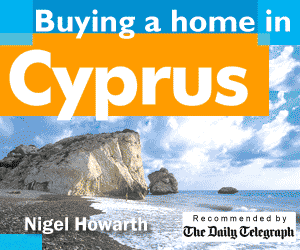Rental yields
Many developers and companies marketing overseas property in Cyprus continue to promote the island as an ideal investment opportunity claiming that the island has "bucked the trend" of the credit crunch. Some still talk of "phenomenal" returns, while others are saying that you can get up to 30% per annum rental return.
However, the latest independent assessment of the market carried out by RICS Cyprus (The Royal Institute of Chartered Surveyors) and published in July 2011, presents a somewhat different picture:

Factors affecting the market
There are a number of factors affecting Cyprus’ position in the international property market. Some of these are due to external influences, others are due to home grown issues.
- The property investment market is highly susceptible to currency fluctuations. In recent times British investors have seen the value of Sterling fall against the Euro, which in some cases has resulted in them having to pay an extra €10,000 and more to complete their purchase.
- Cyprus’ competitive position is adversely affected by the high cost of air fares. Some low-cost carries have started to operate flights between Cyprus and the UK, although tickets are still very expensive.
- External events, such as conflicts in the Middle East and terrorist attacks, reduce tourist numbers; this has a knock-on effect on property sales. (However, internal troubles in Egypt and some other middle-eastern states have resulted in many tourists choosing Cyprus as an alternative holiday destination).
- Upgrades to Paphos and Larnaca airports enable them to handle more flights thereby increasing the number of visitors to the island.
- Much of the property built for foreign buyers tends to be uninspiring in design with very basic fixtures, fittings and finishes. In a recent article, a leading firm of charted surveyors bemoaned the fact that the quality of property bought by overseas investors was in decline and expressed concern over the long-term viability of the companies involved.
- Many of the more popular areas of the island are littered with property development, much of which is owned by foreigners. As well as creating expatriate ghettos and denuding parts of the island of its natural beauty, the volume and pace of construction places heavy demands on the infrastructure and resources of the island. In some places, over-development results in frequent cuts in the supply of electricity.
- Cyprus has no rivers; it is almost totally dependent on the winter snow and rain for its water. Below average rainfall results in chronic water shortages and rationing. There is a desalination plant and further plants are planned to alleviate the problem.
-
Other home grown issues include:
- Unacceptable bureaucratic delays in issuing Title Deeds;
- Laws are often not enforced by the authorities;
- Abuse of the law by property developers;
- Lawyers acting in ways that would result in them being struck off in other civilised countries.
Expatriate hot spots
A study showed that foreign nationals from different countries prefer to live in different areas of the island:
- 60% of the British live in Paphos while another 20% live in Limassol.
- Virtually all of the Serbians live in Limassol
- 70% of the Russians live in Limassol, 10% in Larnaca, 10% in Paralimni and 10% in Paphos.
- The most popular place for business-based Germans is Limassol followed by Paphos.
- Almost all of the nationals of the Nordic countries live in the Famagusta region.
In recent times, many well-heeled Russians have bought property in Limassol, which has helped to bolster prices and sales in the area.
 Unlike
some other countries, Cyprus
does not have a large property market. Around 20,000 new dwellings (apartments,
villas, townhouses, etc) are built each year.
Unlike
some other countries, Cyprus
does not have a large property market. Around 20,000 new dwellings (apartments,
villas, townhouses, etc) are built each year.





